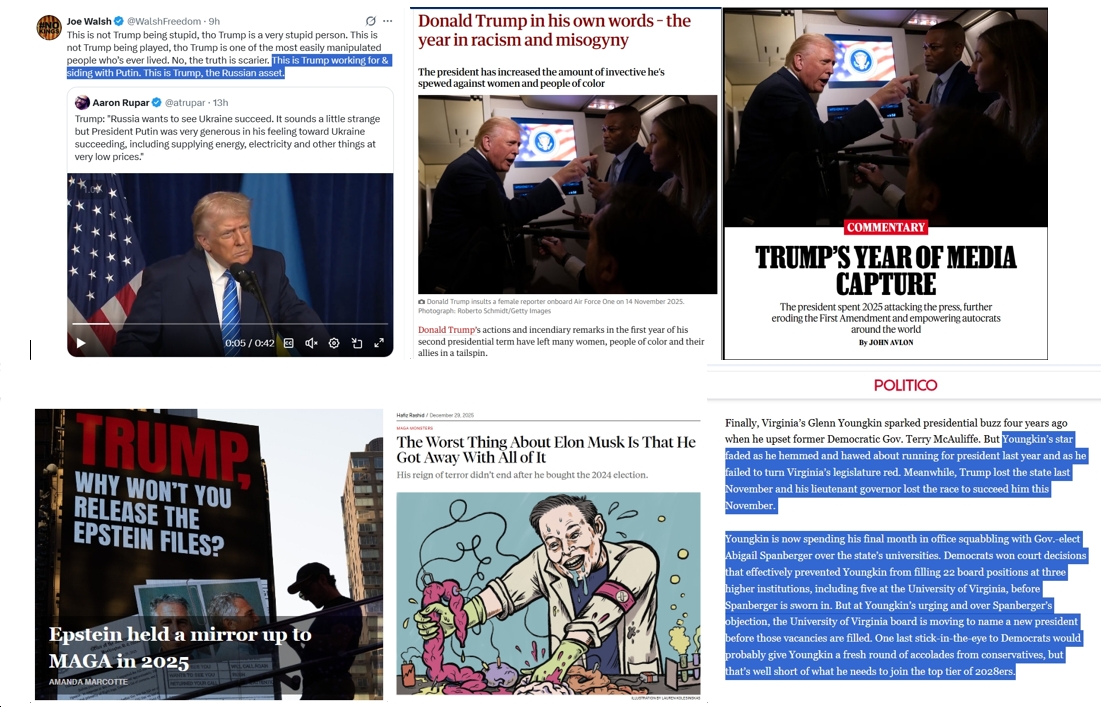See below for a great thread (on Twitter, ironically – or appropriately!) by Georgetown University Professor Thomas Zimmer on “Twitter, Musk, and the destruction of the virtual public square.” A few key points include:
- “The end may be near. No amount of snark or schadenfreude will change the fact that this situation is a disaster. Twitter has always been a mess – but also a crucial instrument to democratize America.”
- “here are two distinct, but intertwined issues here: There is the fact that a tech oligarchy, animated by an inherently anti-democratic worldview, holds so much power; and there is, more specifically, the threat to the world’s most important political communications platform.”
- “It is not a coincidence that the Right – the Trumpist Right, specifically – is cheering Musk on. If someone has the enthusiastic support of those who want to undermine and abolish democracy, it is probably fair to assume that there is cause for concern.”
- “Musk is yet another example of the libertarian-to-far-right-pipeline. Peter Thiel is probably the most striking example of this – a stark reminder that these types of libertarians have always been driven by a desire for freedom from regulation of any kind to do as they please.”
- “And now that inherently anti-democratic, anti-egalitarian worldview is animating the man in charge of the world’s most important political communications platform, a virtual public square functioning as an essential part of democratic culture.”
- “Twitter could have been, should have been, so much better. But casually dismissing the platform as ‘not real life’ has always been silly – its enormous influence on the broader public, media, and political discourses is undeniable.”
- “As @RVAwonk points out, Twitter has functioned as an indispensable communication tool in disaster and emergency situations – on a global scale. The potential loss of that alone is highly problematic. And that’s before we take into account the platform’s democratizing effects.”
- “Twitter established a conversation between people in powerful positions to shape the political and public imaginary – because they are journalists, or politicians, or public figures – and people who would otherwise never have access to those levels of influence.”
- “Most importantly, Twitter has been instrumental in amplifying the voices, demands, and the critique of traditionally marginalized groups. That’s where it really demonstrated its democratizing potential.”
- “To the extent that traditional societal elites – and elite white men, in particular – face a little more scrutiny today than in the past, that they have been deprived of their supposed ‘right’ to unquestioned deference and affirmation, Twitter has helped democratize public life.”
- “Losing this will hurt – hurt the attempts to finally make America live up to the promise of egalitarian multiracial pluralism, to become the democracy it never has been yet. That those elected to safeguard democracy have seemingly cared little about this is a massive failure.”
- “Finally, there is this: White male hero worship of the worst kind. The message here seems to be that we’ll just have to live with the damage these tech oligarchs cause – and be grateful for all the wonders with which they are supposedly blessing the world. No, no, no.”
- “This type of sacrifice at the altar of the white male genius is so toxic. Artists, entrepreneurs, inventors – let us no longer suspend the rules for them, enable them, make vulnerable people pay the price for their awfulness. This needs to stop. We need to hold them accountable.”
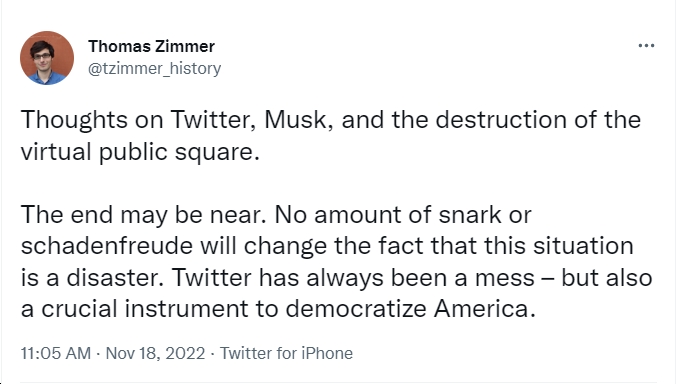
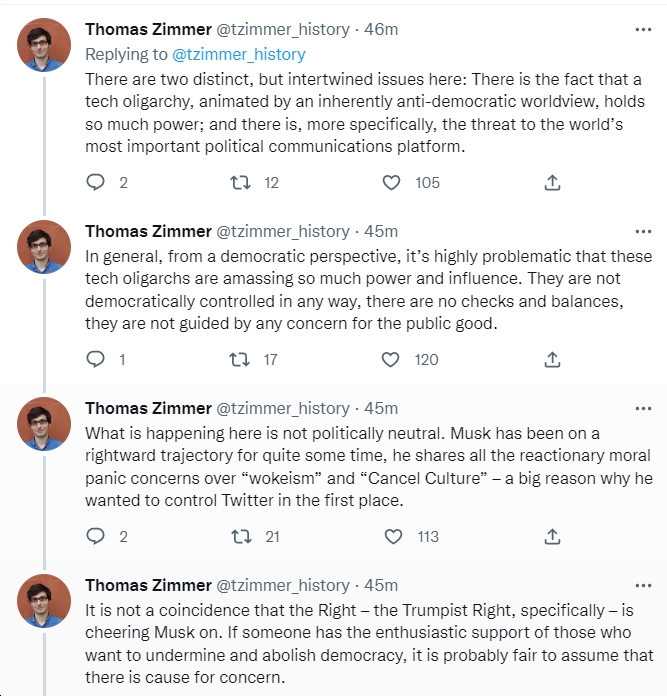
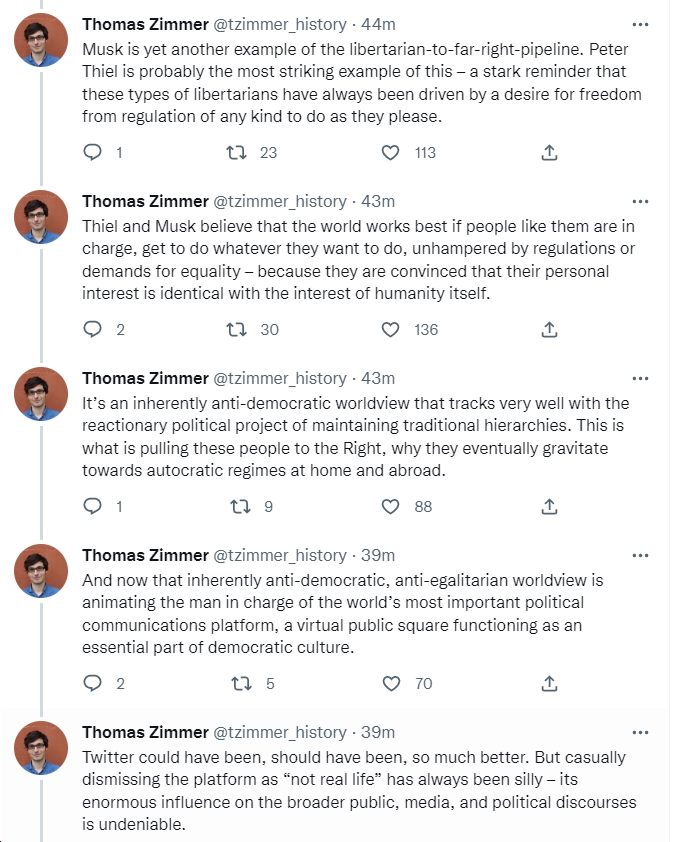
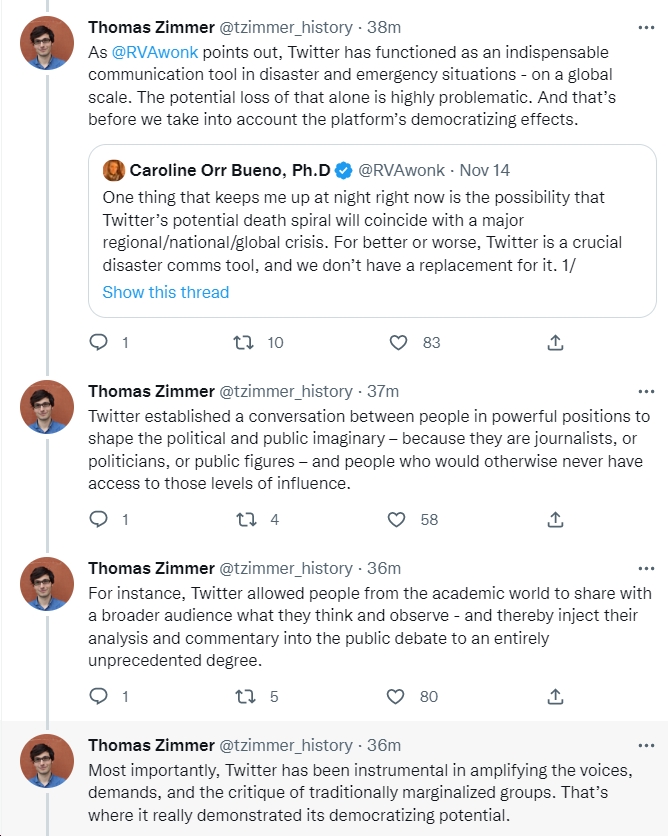
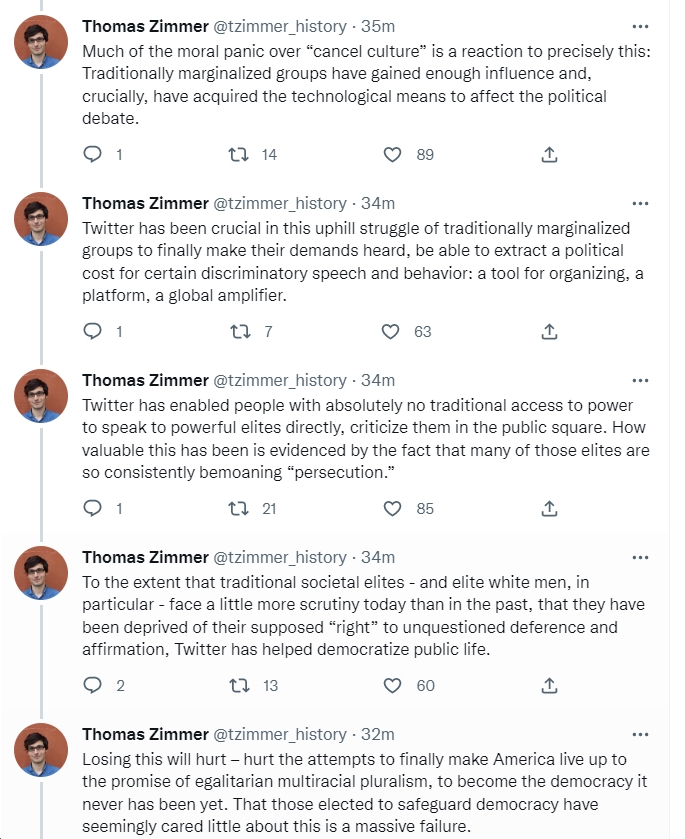
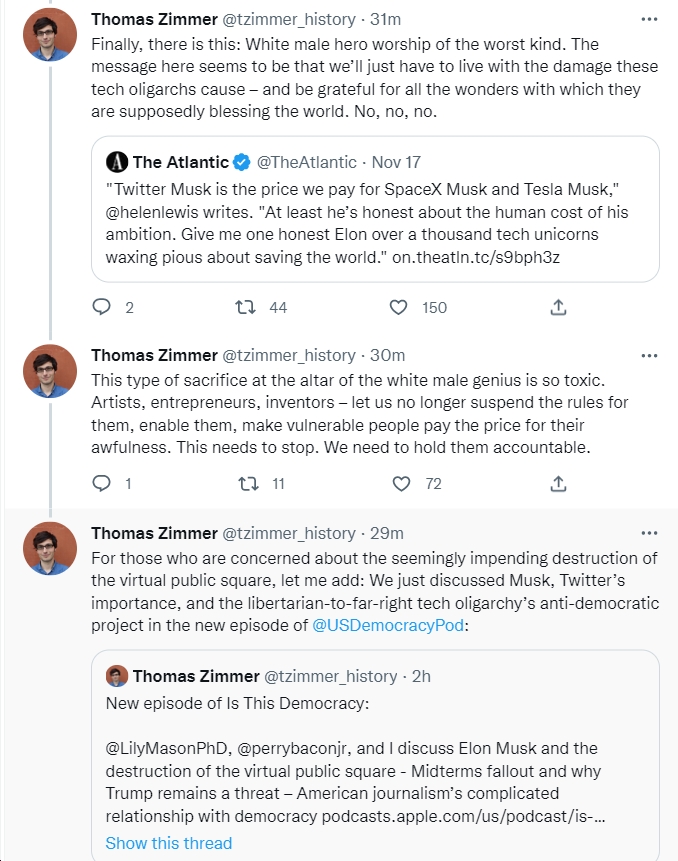



![Sunday News: “Trump Is Briefed on Options for Striking Iran as Protests Continue”; “Trump and Vance Are Fanning the Flames. Again”; “Shooting death of [Renee Good] matters to all of us”; “Fascism or freedom? The choice is yours”](https://bluevirginia.us/wp-content/uploads/2026/01/montage011126.jpg)

![Thursday News: “Europe draws red line on Greenland after a year of trying to pacify Trump”; “ICE Agent Kills Woman, DHS Tells Obvious, Insane Lies About It”; “Trump’s DOJ sued Virginia. Our attorney general surrendered”; “Political domino effect hits Alexandria as Sen. Ebbin [to resign] to join Spanberger administration”](https://bluevirginia.us/wp-content/uploads/2026/01/montage010826.jpg)
